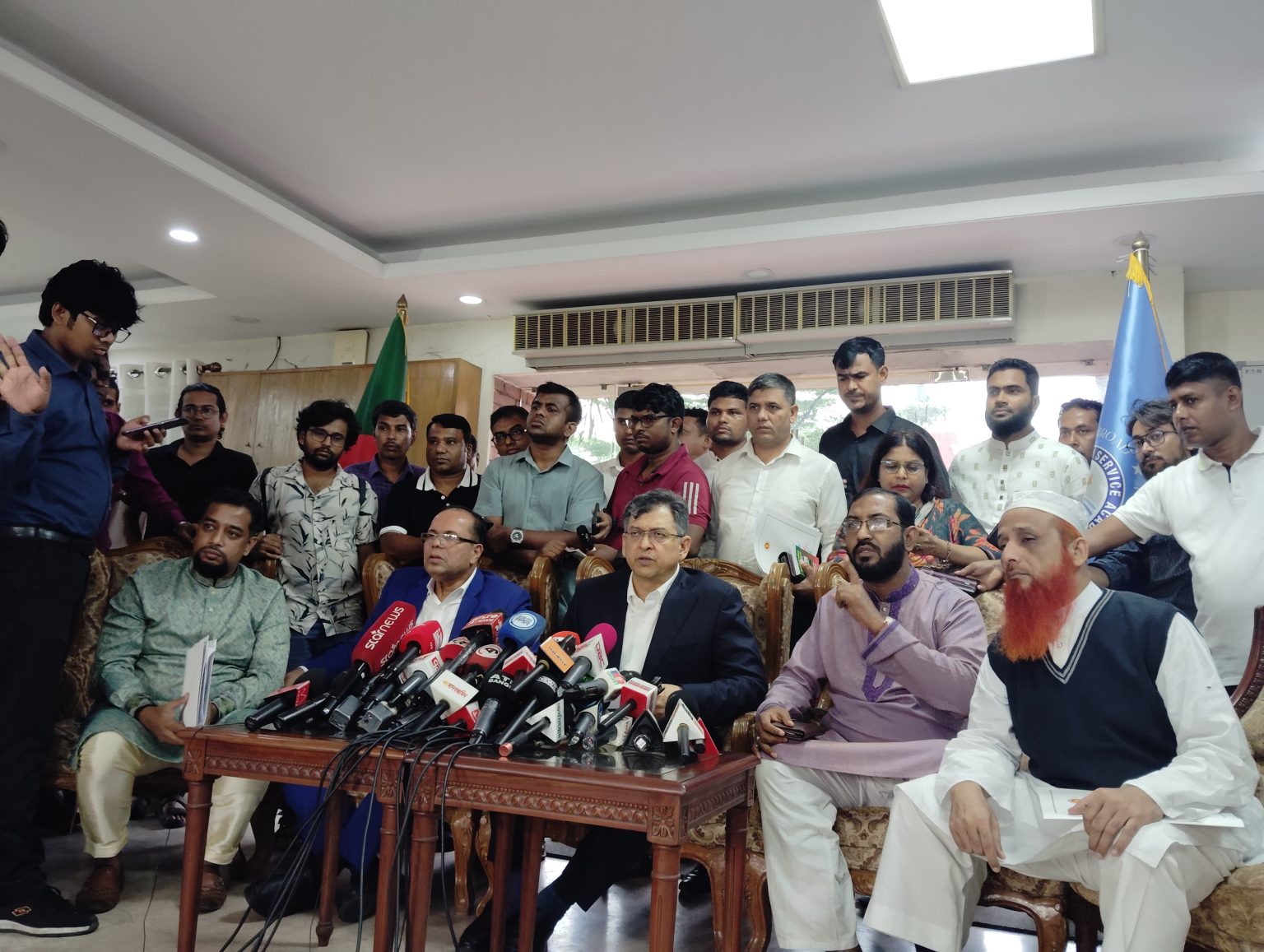Disagreements have emerged among major political parties over the formation of a new constitutional body proposed by the interim government’s National Consensus Commission (NCC).
The initiative for formation of a National Constitutional Council, intended to strike a balance of power between the executive branch and other state organs, triggered a heated debate among politicians at a meeting of the National Consensus Commission on Wednesday.
A section of the leaders represented their parties staged a brief walkout over their denial to speak at the commission’s third meeting of the second phase.
Opponents of the proposal argue that such a council would erode the authority of the prime minister. In contrast, supporters claim only those aligned with authoritarianism would oppose the creation of such a body aimed at ensuring impartial governance in the future.
According to the NCC’s outline, the proposed council would function as an independent body responsible for key constitutional appointments—including the Chief Election Commissioner, the head of the Anti-Corruption Commission, and members of the Public Service Commission. The proposal seeks to curb the executive’s unilateral control and establish institutional checks and balances.
The Bangladesh Nationalist Party (BNP) and several of its allies have rejected the idea, contending that it would undermine the executive’s authority.
Meanwhile, parties such as the National Citizen Party (NCP), Bangladesh Jamaat-e-Islami, and the Amar Bangladesh Party (AB Party) have endorsed the initiative, branding its critics as supporters of fascist structures.
Around 30 political parties — including BNP, Jamaat-e-Islami, NCP, Gono Adhikar Parishad, Gonosonghoti Andolon, Communist Party of Bangladesh (CPB), Revolutionary Workers Party, and the AB Party—attended the third meeting of the second phase of NCC-led discussions at the Foreign Service Academy in Dhaka.
The NCC is currently engaging with political parties to build consensus on core constitutional issues ahead of the next year’s national election, likely to be held in February.
Speaking to reporters, BNP Standing Committee member Salahuddin Ahmed said, “We oppose the formation of a body like the NCC. It may disturb the balance of power within the state. Moreover, there are no clear accountability mechanisms in place for such a council.”
He added that necessary reforms could be achieved by amending existing laws and safeguarding judicial independence.
The BNP also rejected the NCC’s proposed method for electing the President — via votes from all local government representatives and Members of Parliament — calling it a return to a “basic democracy model.”
Instead, the party advocates for a direct vote by the members of a proposed bicameral legislature.
NCC Vice Chairman Ali Riaz, briefing reporters after the meeting, said discussions focused on two key issues: the powers of the President and the formation of the NCC.
“Political parties have broadly agreed on the need for a constitutional mechanism for key appointments, though some differences remain regarding its structure,” he said.
He added that proposals regarding the election of the President were also tabled by the Constitutional Reform Commission and the Electoral System Reform Commission.
“There’s a shared understanding about the need to rebalance power by enhancing the President’s role, but further discussions are required,” Riaz said.
The next session will revisit unfinished agenda items, along with new topics such as the term limit for the Prime Minister, fundamental principles of the Constitution, and constituency delimitation.
NCP Convener Nahid Islam said some parties opposed the constitutional council only to preserve authoritarian interests.
“Those against the council want to cling to the fascist status quo,” he said, emphasising that the NCP supports the council’s creation but has reservations about its formation process.
He urged dissenting parties to present alternative frameworks and warned against returning to dysfunctional institutions.
“Despite having a Human Rights Commission, it remained inactive for 16 years. The Election Commission and the Anti-Corruption Commission lost credibility by becoming tools of a single party and leader.”
“The council is a step toward curbing executive overreach,” Nahid said. However, he cautioned against granting the council authority over military appointments and including the President and Chief Justice as members.
AB Party President Mujibur Rahman Monju echoed these sentiments, accusing major parties of resisting reform to maintain control over key appointments.
“They want to retain partisan influence over the five major commissions. Such politicised appointments have repeatedly led to incompetence and regional bias,” he said.
“The Election Commission, Anti-Corruption Commission, Public Service Commission, and Human Rights Commission have all suffered from political interference. If this continues, the sacrifices made for democratic reform will be in vain,” he added.
The AB Party also supports excluding the President and Chief Justice from the proposed council.
Jamaat-e-Islami’s Naib-e-Ameer, Syed Abdullah Mohammad Taher, said his party supports the council. He viewed it as a mechanism to ensure a proper power balance. However, he too rejected the idea of including the President, Chief Justice, or the chiefs of the armed forces within its structure.
Taher also commented on the recent meeting in London between Chief Adviser Muhammad Yunus and BNP Acting Chairman Tarique Rahman.
“The joint press conference following their meeting compromised the neutrality of the interim government. Such overt coordination between the government and one party is unprecedented and has alienated others.”
He added that Chief Adviser later spoke with Jamaat Ameer, and only after that discussion did Jamaat decide to attend Wednesday’s meeting.
Tensions flared during the session when several participants were reportedly denied the chance to speak. CPB General Secretary Ruhin Hossain Prince, Gono Forum’s Mizanur Rahman, and 12-Party Alliance Coordinator Shahadat Hossain Selim staged a walkout. However, they returned after receiving assurances from the NCC.
The disruption was reportedly triggered by remarks made by Jamaat leader Taher during the discussion.


